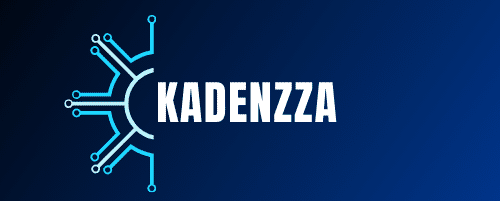How Can UK Agricultural Businesses Integrate IoT for Farming Efficiency?

As the world becomes increasingly connected, the Internet of Things (IoT) has permeated countless industries, transforming the way we live and work. Agriculture is no exception to this digital revolution. For UK farmers and agricultural businesses, IoT offers unprecedented opportunities for enhancing productivity and sustainability. This article will delve into the mechanisms of IoT in farming, highlighting the practical aspects of its integration to facilitate smart agriculture in the UK.
Understanding IoT-Based Solutions for Agriculture
IoT-based solutions for agriculture comprise an interconnected ecosystem of sensors, devices, and software. These elements work together to collect, transfer, and analyze data, enabling farmers to monitor and manage their farms with higher precision and efficiency.
Cela peut vous intéresser : What Are the Effective PR Strategies for Launching a UK Tech Startup?
In essence, IoT technology brings farming into the digital era, providing agricultural businesses with real-time insights into various aspects of their operations – from soil conditions and crop health to livestock wellbeing and resource management. By harnessing the power of IoT, farmers can make data-driven decisions, optimize their practices, and ultimately improve their yield and profitability.
Enhancing Crop Monitoring and Management with IoT
The success of agricultural activities significantly hinges on effective crop monitoring and management. IoT technology, with its array of smart sensors and devices, offers innovative solutions for these tasks.
Dans le meme genre : What Are the Benefits of Adopting a Remote Work Model for UK Creative Agencies?
Sensors installed in the fields can continually track parameters like soil moisture, temperature, pH levels, and nutrient content. These devices help farmers monitor the health of their crops and the condition of their fields in real-time, eliminating the time-consuming process of manual checks. Furthermore, the data generated by these sensors can be analyzed to predict crop performance and identify potential issues before they escalate.
IoT also enables precision farming, a more tailored approach to crop management. Using the data collected, farmers can determine the precise amount of water, fertilizers, or pesticides each crop requires, thus reducing waste and ensuring the optimal growth of crops.
Leveraging IoT for Livestock Monitoring
Beyond crops, IoT also offers valuable solutions for livestock monitoring. With IoT devices, farmers can keep a close eye on their animals’ health and wellbeing without the need for constant physical supervision.
For example, wearable IoT devices can track vitals such as heart rate, body temperature, and activity levels, providing real-time updates on the health status of each animal. In addition to health monitoring, this technology can also aid in locating livestock and observing their behavioral patterns, which can be crucial in preventing theft, loss, or disease outbreaks.
With these capabilities, IoT technologies significantly streamline livestock management, saving farmers valuable time and resources, and enhancing animal welfare.
Optimizing Resource Utilisation with IoT
Agriculture is a resource-intensive industry. From water to fertilizers and energy, efficient management of these resources is vital for sustainable farming. IoT technologies offer potential solutions for optimizing resource utilization, promoting sustainability in agriculture.
Smart irrigation systems, for instance, use soil moisture sensors to regulate water usage, ensuring crops receive the necessary amount of water and reducing wastage. Similarly, IoT devices can monitor the use of fertilizers and pesticides, helping farmers apply these substances precisely where and when they’re needed.
Moreover, IoT can optimize energy use in farming operations. For instance, smart devices can monitor and control the operation of farm machinery, ensuring optimal performance and energy efficiency.
Implementing IoT in the UK Agricultural Sector
Embracing IoT in agriculture in the UK entails infrastructural changes and capacity building among farmers. To start, agricultural businesses must invest in IoT devices and sensors and establish reliable internet connectivity in their farms. This may require partnering with technology providers and telecommunication companies.
Furthermore, farmers need training to effectively use and maintain these technologies and to interpret the data they generate. Collaborations with educational institutions and agricultural extension services can play a crucial role in this capacity building.
Finally, the implementation of IoT in agriculture must be supported by appropriate policies and regulations. Policymakers should ensure data privacy and security, promote investment in IoT infrastructure, and foster an environment conducive to digital innovation in agriculture.
In conclusion, integrating IoT in farming in the UK can lead to significant gains in efficiency and sustainability. It offers a promising pathway for the future of agriculture, providing farmers with the tools they need to face the challenges of the 21st century.
Strengthening Decision-Making through IoT Data Analytics
Data analytics plays an integral role in the successful implementation of IoT in agriculture. It doesn’t just help farmers collect real-time data; it also empowers them to make informed, intelligent decisions based on the data collected.
IoT devices generate vast amounts of data. However, raw data alone is not useful. It needs to be processed, analysed, and interpreted to extract actionable insights. This is where data analytics comes in. It uses advanced algorithms and statistical models to reveal trends, patterns, and correlations in data, enabling farmers to comprehend the larger picture.
For example, by analysing soil moisture data, farmers can understand the soil’s water retention capacity and adjust their irrigation practices accordingly. Similarly, analysing weather data can help predict the ideal planting and harvesting times, thereby maximising crop yield and reducing waste. Livestock health data analysis can detect early signs of disease, allowing for timely intervention and treatment.
Data-driven decision making also aids in precision agriculture. For instance, a farmer can determine the exact amount of fertiliser needed for a specific crop in a specific field, reducing overuse and maintaining soil health.
In essence, data analytics transforms IoT’s real-time data into valuable insights, guiding farmers and agricultural businesses in their decision-making processes and optimising their operations.
The Future of IoT in UK Agriculture
IoT is more than a technological trend; it’s a game-changer in the agriculture industry. As more farmers and agricultural businesses in the UK adopt IoT-based solutions, we will likely witness a shift towards more sustainable, efficient, and productive farming practices.
The future of agriculture with IoT looks promising. With the continued development of IoT devices and advancements in data analytics, farmers will be able to monitor their crops and livestock with even greater precision. They’ll be able to control their operations remotely, reducing labour costs and increasing efficiency.
In addition, IoT will enable more effective resource management, reducing waste and promoting sustainability. With real-time data at their fingertips, farmers will be able to respond quickly to changes in field conditions and weather, minimising the impact of adverse events on their operations.
The benefits of IoT in agriculture extend beyond the farm gate. By enhancing productivity and sustainability, IoT can contribute to food security and economic growth, underlining its critical role in the UK’s agricultural sector.
However, this digital transformation requires continued investment in IoT infrastructure, capacity building among farmers, and supportive policies. With the right support, UK farmers can fully harness the power of IoT, driving a new era of smart agriculture and ensuring the industry’s future resilience and prosperity.
In conclusion, the integration of IoT in UK agriculture represents a significant stride towards smart farming. It presents an opportunity for farmers to improve their efficiency, sustainability, and profitability through data-driven decision-making. As the technology matures and becomes more accessible, IoT is set to revolutionise the UK’s agriculture industry, making it well-equipped to meet the challenges of the future.
